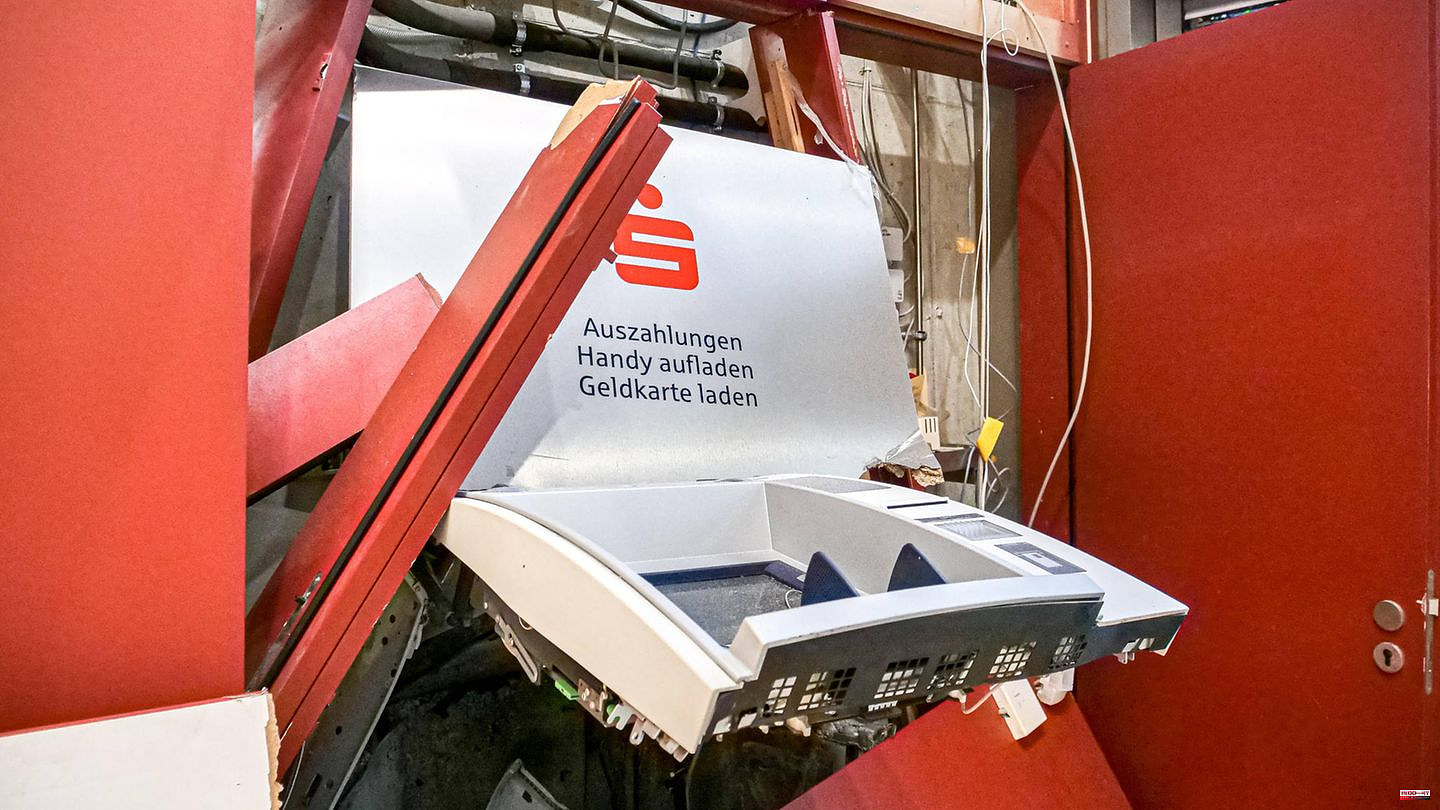In many places at branches of savings banks and banks, access to the ATM remains closed at night - to make attacks by machine demolition machines more difficult. At the savings banks in Westphalia and Lippe, 80 percent of the locations will be closed at night at the end of the current year, said President Liane Buchholz on Tuesday in Münster at the annual balance sheet of the regional savings banks association. According to the information, it is currently around 70 percent. At the savings banks in the Rhineland, in coordination with the police, more than 70 percent of access to ATMs is blocked between 11 p.m. and 6 a.m., said a spokesman for the regional savings banks association of the German Press Agency.
Both associations in North Rhine-Westphalia made it clear that a package of measures to secure machines was involved. Depending on the location, this included fogging systems, money coloring systems, mechanical safeguards such as rolling grilles and also new types of pavilions with massive reinforced concrete construction. These are very safe - "that's very impressive," said Buchholz about the buildings, which resemble oversized advertising columns and are set up outdoors.
There are already around 80 of these at the savings banks in Westphalia and Lippe, each costing EUR 50,000. If the blast was successful, the perpetrators stole an average of around 100,000 euros. The damage, including damage to buildings, could go up to one million euros.
Private banks also see night-time closings of branches as an additional protective measure: "We also have night-time closings, in which entrance areas are closed from around 10 p.m.," said a spokesman for the North Rhine-Westphalia Banking Association of the German Press Agency. "The banks continue to invest heavily in security and work closely with the police."
According to the State Criminal Police Office (LKA) in North Rhine-Westphalia, "the be-all and end-all in thwarting ATM blasts" is prevention. "The aim here must be to reduce incentives and opportunities in particular," said an LKA spokesman. For this reason, too, a risk analysis was drawn up for the ATMs in NRW, on the basis of which measures can then be taken. According to experts, reinforced concrete pavilions offer the greatest possible protection against blasts.
"If we upgrade, the perpetrators will also upgrade," said Savings Banks Association President Buchholz. The perpetrators would be even more unscrupulous, she said, referring to the plastic explosives used and the considerable damage to buildings. There is a black market for banknotes marked with color in order to use them as well.
According to the association, the number of ATMs at the savings banks in Westphalia and Lippe fell by 14 percent from 2586 in 2018 to 2217 in 2022. This is partly due to safety considerations. Branch closures also played a role. When making location decisions, it should also be taken into account that the demand for cash is high. This must be taken into account with a corresponding machine offer.
According to the Rhineland Savings Banks Association, the exchange with the police "with a high degree of probability will ultimately lead to further ATMs being dismantled for security reasons on the basis of the risk analyses." Within the past ten years, a good 25 percent of the ATM locations in the Rhenish savings banks have been removed. "Initially, this happened mainly in connection with branch concentrations, in recent years security aspects have increasingly been the reason for the dismantling of ATMs," explained a spokesman for the regional association.
When asked about the future number of ATMs, the Dortmunder Volksbank points out that the increasing range of cashless payment options, which has been fueled by the pandemic, is leading to fewer transactions at ATMs. The cash supply in the region will continue to be ensured through cooperation with local banks and savings banks and alternative retail options. "A reduction in the number of devices does not therefore reduce the availability points (cash points) in our region," explained the Dortmunder Volksbank.
The number of explosive attacks on ATMs reached a new high in NRW in 2022. With 182 attacks, it was about 20 percent higher than the number of 2021. The old high was registered in 2020 with 176 cases. For the first half of 2022 alone, the damage caused by the attacks was estimated at almost eleven million euros.







